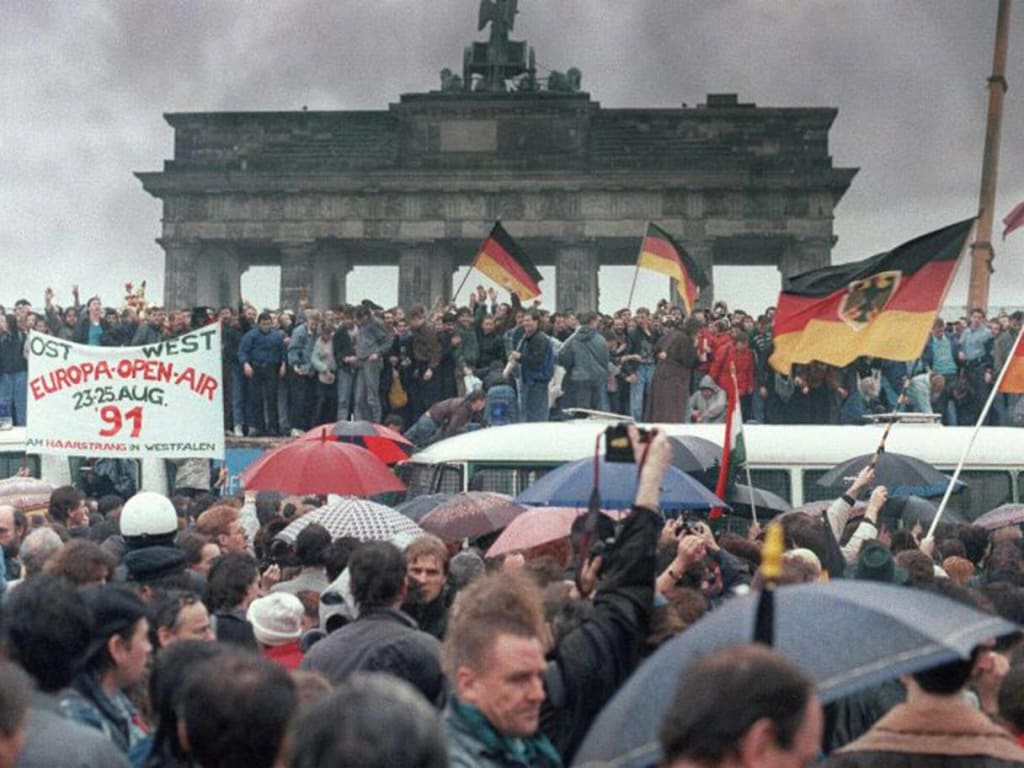The end of the Cold War, the rise of consumerism, and Reaganomics brought forward new voices to gain ground in popular music.
The 1980s are the moments in history when disasters were painted in neon colours. All it took was for one television network to finally give a voice the world’s hippest protest music. Launched in 1981, MTV started to gain its footing at the beginning of the decade. This new channel dedicated to music provided a platform for popular music from areas all of the world, as well as new genres to be heard by the American public.
Once the Reagan administration started the war on drugs, those from the punk and rap community found common ground, as many poverty-stricken areas began to suffer even more due to an increase in violence against minorities.
Although serious problems arose throughout this tumultuous decade, great protest music was created to voice out against injustice, this time on a much larger scale.
These are some of the most powerful and political songs of the 1980s.
“99 Luftballons” by Nena
“99 Luftballons” was released in 1983 by the German band Nena about balloons triggering a nuclear war. The Cold War was on everyone’s mind during the 1980s as Western powers began to once again push the Soviet Union into tearing down the Berlin Wall, which had stood since the country erected it in 1961. The wall would eventually be torn down in 1989, with the Soviet Union collapsing in 1991.
The song became so popular that an English-language version was created, called “99 Red Balloons.” Released in 1984, the English and German versions were played regularly on MTV, helping the song reach a much larger market.
The English version not a direct translation of the German original as the word “luftballons” means air balloons in English. Most believe the colour red was added to the title because of the close association it has with communism.
“Born in the U.S.A.” by Bruce Springsteen
Often dubbed the unintentional protest song, “Born in the U.S.A.” by Bruce Springsteen addresses the harmful psychological effects the Vietnam War had on veterans, as well as how they were being treated by the public.
The song eventually became associated with politics during the 1984 presidential campaign. The campaign season was in full swing by the time this single and album with the same name were released. Ronald Reagan was turning towards young adults as a key voting demographic, adding to one of his speeches:
“America’s future rests in a thousand dreams inside your hearts; it rests in the message of hope in songs so many young Americans admire: New Jersey’s own Bruce Springsteen. And helping you make those dreams come true is what this job of mine is all about.”
America has never treated its war veterans very well. This extends as far back as the Vietnam War, which officially ended in 1975 after nearly 20 years. Springsteen wrote “Born in the U.S.A.” with the regular working-class man on his mind. This was a man who felt like he was isolated from society, so he ends up turning towards finding the eternal truth after a long-lasting fight on foreign land.
“Sunday Bloody Sunday” by U2
U2 was easily one of the most socially conscious bands of the 1980s. “Sunday Bloody Sunday” is about the infamous massacre that took place in Derry, Northern Ireland on January 30, 1972.
A group of unarmed civil rights protesters were shot by British soldiers when they were trying to rebel against the government. At the time, there was a conflict between the unionists in Northern Ireland (mainly Protestant) and the nationalists (mainly Catholic). The unionists wanted Northern Ireland to stay with the United Kingdom, whereas the nationalists wanted to leave and join a united Ireland together.
Naturally, since U2 was an Irish rock group, they felt it was necessary to voice their opinion on such a significant event that devastated their own country. “Sunday Bloody Sunday” opens the band’s 1983 album War and is by far one of the more overtly political songs they have ever released.
“Fuck Tha Police” by N.W.A.
Violence plagued the city of Los Angeles for the majority of the late 1980s and early 1990s. At the center of it all was a newly formed group called N.W.A., with a fresh perspective that spoke to people. Released in 1988, “Fuck Tha Police” was one of the first songs to encapsulate police brutality and racial profiling. This was one of the many tracks from their 1988 album, Straight Outta Compton, that got several people to take notice of the injustices happening against visible minorities in Los Angeles.
With how brutal some saw the title of the song, it came as no surprise that the track was hit with plenty of controversies. Many radio stations never allowed the song to air, and those that did were usually met with hostility. While this song is questionable in its subject matter, it gives anyone that listens to it a real sense of what horrible things were happening to people of colour during that time.
N.W.A. and “Fuck Tha Police” paved the way for several other rap groups afterwards, giving them a chance to truly find their own voice.
The Most Powerful Political Songs of the Decade: The 1970s

